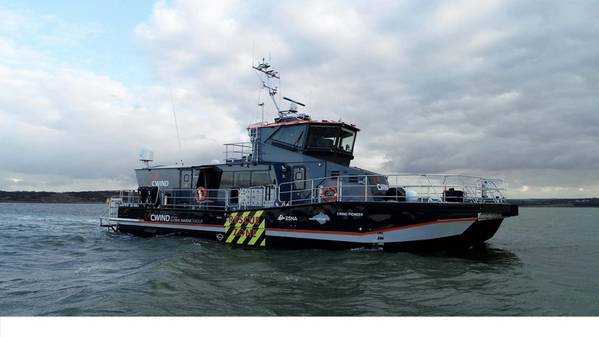
Bureau Veritas (BV) classed the world’s first hybrid-powered Surface Effect Ship (SES), the CWind Pioneer, which features an air cushion, twin hulls and an innovative diesel and electric drivetrain with considerable battery storage onboard.
With a capacity of 24 passengers, CWind Pioneer can operate at speeds exceeding 43 knots, and can transfer personnel even in extreme weather conditions with significant wave heights up to 2m. Its air cushion motion control system is designed to provide significant advantages, with smoother and more comfortable conditions on-board and increased operational days offshore. The CWind Pioneer is being used at the Borssele 1 and 2 offshore wind farms in the Netherlands.
CWind Pioneer is a first of its kind with a hybrid diesel and battery electric power system, which enables the vessel to operate purely on battery power alongside or at slow speeds, such as when transiting restricted waterways or on standby in the windfarm, which helps reduce fuel consumption, reduce [diesel] engine running hours and lower CO2 emissions. BV’s notation ‘Electric-Hybrid’ addresses the complexity of these systems, defining requirements for storage, power distribution, control and instrumentation, as well as tests that must be carried out especially when it relates to power management and critical safety considerations, such as thermal runaway.



